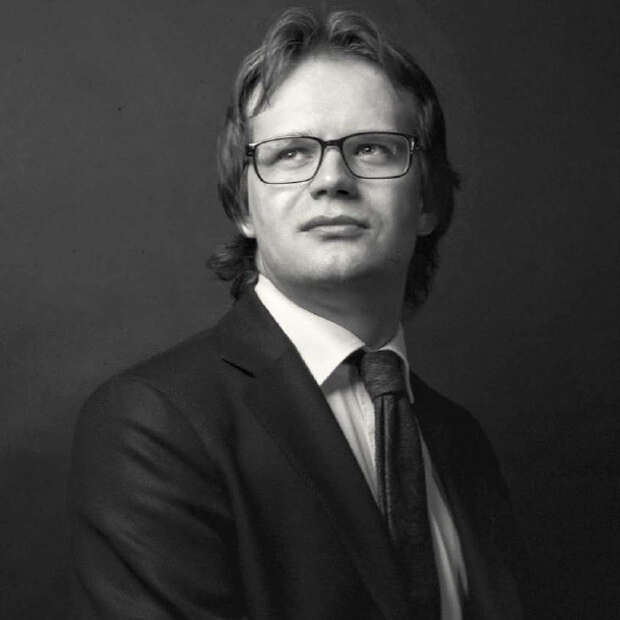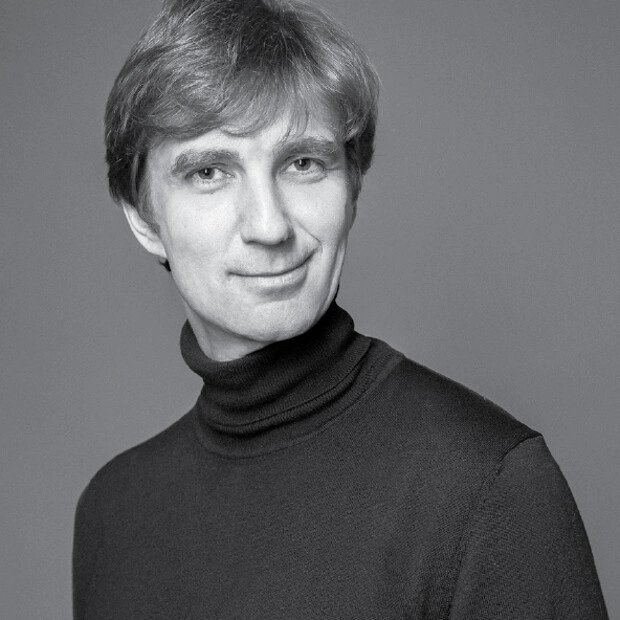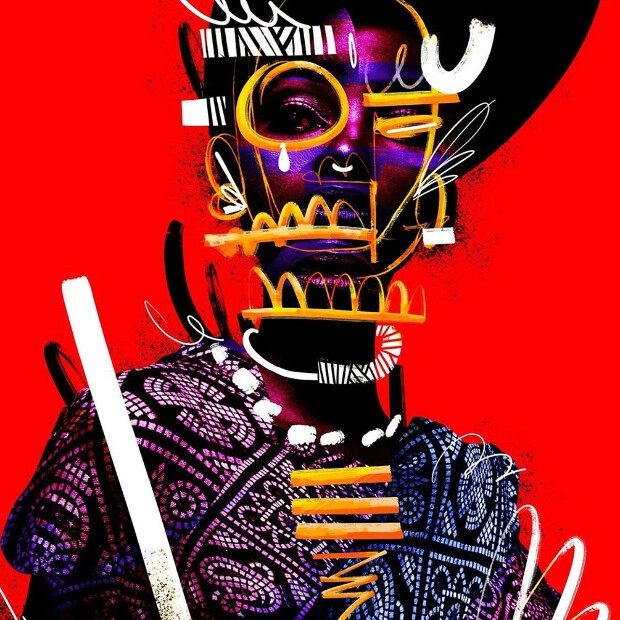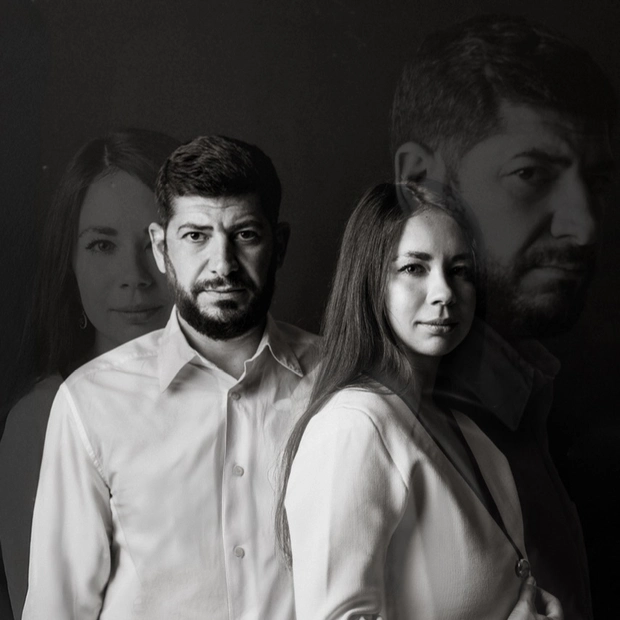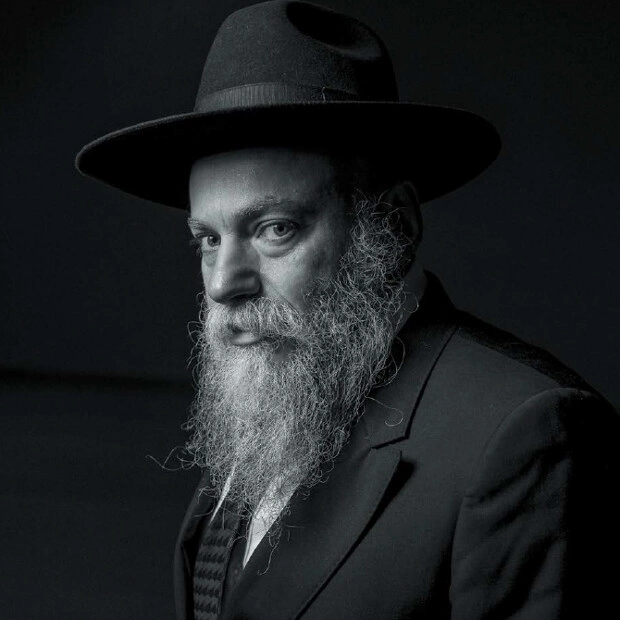Be logical and fair. Always
Success is often measured by instant achievements and superficial victories, but true value lies in a deep understanding of purpose and sustainable growth. Each step up the career ladder isn't merely an upward movement, but an opportunity to gain wisdom and strengthen one's position. It's important not only to achieve goals but to realise that the path to them should be logical and fair. Elvira Sharshenalieva, founder of Eva Real Estate, shares her experience: how steady growth and love for her work led her to create a structured and balanced business in the property sector.
As a student, I managed to earn a decent sum of money one summer. I dreamt of buying a car and working as a distributor — a lucrative job at the time. I planned to switch to distance learning and start helping my mother. However, Mum said, "If need be, I won't eat; if necessary, I won't dress, but I'll do everything to ensure you get an education." She insisted that I shouldn't be distracted by work until I finished university. This wasn't just a parental demand; it was an invaluable investment in my future.
Her words proved prophetic. After my first year, I was recognised as the best student and sent on an exchange programme to South Korea. There, I discovered a new culture and path of development that completely changed my life. I realised I could achieve more than I had thought possible in my own country. Recalling Mum's words, I understand that education is the foundation upon which the future is built.
Mum truly did everything possible for my education, and I was able to gain maximum knowledge. Although at that moment, I could have simply gone to earn money as a distributor. Now, I place enormous importance on my children's education and constantly strive for self-development through courses and books.
My path wasn't predetermined. I, an economist-lawyer by education, worked in the Ministry of Economy, the Red Crescent, and the Chamber of Commerce and Industry. In 2013, my husband and I planned to move to Canada and submitted our documents. To avoid wasting time, we decided to temporarily settle in Dubai — for six months, a year at most. We had only $3,500 with us. We sold our car and everything we could, not wanting to depend on our parents.
Dubai greeted us harshly: our funds proved insufficient, and we had to look for work. My husband got a job as a salesman in a watch shop, and I — in Damac. This happened by chance: the girl from whom we rented a flat worked there and agreed to pass on my CV for a fee. At the very first interview, Vice President Fawaz Souz hired me, saying he saw something in me and that I would be successful in this field. His words turned out to be prophetic.
My only goal then was to survive in Dubai until we received our Canadian documents. The work turned out to be completely unfamiliar and challenging. The buyers were mainly Arabs from the Middle East. My English was weak, as I had studied in Korea in Korean. The first months were difficult: I had to learn everything around me, and my first sale, albeit small, happened only after a month. Working at Damac, I observed how my Arab colleagues successfully sold property using their native language. I sat and thought, "My time will come too." The confidence that it would arrive never left me.
Nevertheless, tears were my frequent companions. The atmosphere in the company resembled the film "The Wolf of Wall Street": "Sell or die." The moral pressure was enormous: employees had their chairs taken away for poor sales, were ignored. I, a sensitive and gentle 26-year-old girl, found myself in this harsh world with rose-tinted glasses.
After six months, things improved: sales grew, my English improved. Damac agents don't sit in the office, at least that was the case during the period I worked there. We weren't given any help: we had to find clients on our own. At that time, there was a property exhibition in Dubai, and I walked around the expo centre looking for potential buyers. It so happened that I started a conversation with one of them at the Dubai Properties stand — trying to attract him to Damac. At some point, a local approached me and asked what I was doing there. I replied that I was working. The Dubai Properties representatives liked this — they appreciated my initiative and desire to work, rather than just waiting for something to happen. They pointed to a lady named Donna Lee Elliott and said she had noticed me. Donna noted that she liked how I communicated with the client and invited me for an interview the next day.
Interestingly, when I went for the interview at Damac, I had prepared thoroughly: I wore a dress, did my hair and makeup. But for the meeting at Dubai Properties, I chose a more modest look — tied my hair in a bun and wore baggy clothes without makeup. These companies differed in their approaches, and I felt it.
The transition to Dubai Properties wasn't easy: Damac opened a case against me for leaving for a competitor. One person told me, "You won't work in any company if you leave here." It was scary, but I took the risk. And I was lucky: Dubai Properties was a state company, so I didn't have to worry about the consequences. Legal proceedings lasted a year, but everything worked out. In those days, everything was on the side of employers, not employees. Now, as an employer myself, I see that the situation has changed.
Meanwhile, documents arrived from Canada confirming our citizenship, but we declined it. Two and a half years had gone into this: I had just started at Dubai Properties and was already pregnant — four months along. We understood that moving to Canada would mean starting a new life and finding ourselves anew. But I had already become engrossed in my work and didn't expect such success. There were always goals: to achieve financial well-being, to buy property or a car. I keep a notebook with records of my plans. But to become a super estate agent? I hadn't even dreamed of that. Looking through old notes, I saw that I wanted to be the head of a large company, but I never thought it would be a property company.
In the end, I worked at Dubai Properties for four and a half years. Rumours about my abilities began to spread in the market: I could explain the value of a product and sell it to the client. I knew all the details — from ceiling heights to materials. I could quickly convert square metres to feet and understood the needs of clients from different countries. For example, Indians liked certain layouts, while Europeans preferred information in numbers. Russian-speaking clients reacted more to emotions. I never positioned myself as just a Russian-speaking seller — I was more often approached by foreigners: Indians and Arabs, Europeans.
I worked at Dubai Properties for four and a half years. After two years, I wanted to leave — I was invited to Emaar, but I stayed because my manager Marwan Al Kindi, now head of sales, created a new position for me and increased my salary, persuading me to stay.
Two and a half years later, I wanted change again. In January, Fawaz Souz from Damac approached me. He was preparing to take a high position at Emaar and offered me to join him. Surprisingly, we managed to maintain good relations, and he always said about the old story: "Nothing personal, just business." I submitted my resignation, but Marwan convinced me to stay again, raising my salary. Three months later, Fawaz said it was my last chance to try something new and advised me not to stand still. It was a difficult decision, as I had become very close to all my colleagues, most of whom were local Arabs. In the end, I decided, taking Donna, the sales director at Dubai Properties, with me, and moved to Emaar.
At Emaar, one of the most lucrative contracts at the time awaited me. However, expectations and reality diverged. They promised a small team, but it turned out there were 250 of us — the best agents from across the property market. Fawaz had gathered real professionals. Now many of them head companies in the UAE.
It was challenging at first. At Dubai Properties, I was a well-known seller, the queen of the company. At Emaar, there were many such queens. I expected to work with former agents, but everything turned out differently. It was as if I had gone back five years and started everything anew. I had to find new ways. I paid attention to small companies then, which have now become major players in the market. We decided to focus on Russian-speaking clients from Russia — this was in 2019.
While working at Emaar, I long tried to convince the management to conduct a roadshow in Moscow to attract Russian investors. Since 2009, there had been almost no Russians in the property market, but in 2019, I called for actively advertising property in Russia. After three months, my efforts paid off. We started travelling to Russia, and sales took off. Soon, all agencies and companies in Dubai were told: "Russia is opening up, investors are returning." In the spring of that year, a massive flow of advertising and trips began, and Russians became leaders among buyers. For this achievement — drawing local market attention to Russian buyers — I received an award from Emaar. In two years of working at the company, I received two awards: the first as a sales leader in the newcomer category, the second for work with the Russian market.
After working in property for eight and a half years, I realised that I had hardly seen my first son due to constant busyness. I worked from nine in the morning until one at night without days off. I decided that I would devote more time to my second child. At the end of 2019, I left Emaar, being three months pregnant. They probably wouldn't have let me go if it weren't for my condition.
In January 2020, the pandemic began. By this time, I had opened a company with three partners: an Iranian, an Indian, and an Egyptian 'Eminence Real Estate'. They had experience working as agents, and I had my own clients. We started investing in an office and business, but in March, lockdown and stress affected all plans. In July, I gave birth to my son in Dubai, as flights to America were cancelled. Two weeks later, I returned to work — the flow of buyers from Russia had increased.
But after some time, misunderstandings arose with the partners: their attitude towards people and vision of the business differed from mine. Now, having more experience, I understand that there were mistakes on both sides. In the end, we decided to part ways.
Leaving behind my previous work, I decided to open my own company, which I named Eva Estate. This was perhaps one of my best decisions. At first, I assembled a team of seven very different people: among them were even a stewardess and a model. I appointed a general manager — he seemed ambitious to me, albeit with little business experience. To conquer the market, I chose the Russian segment, focusing on the Russian-speaking audience.
I always strived for honesty and loyalty in relationships. I didn't want to poach employees from other companies; I preferred to nurture my own specialists, share experience, and teach them to sell as I see and understand it. In a year, our team grew to seventy-four people, with different experiences and skills. After just six months, we received our first award from Binghatti.
Soon, a wonderful employee named Rukshona joined me, who had previously worked at Ellington and AX Capital. She recommended a specialist named Elkhan, who had worked at AX Capital for more than five years. We had known each other from working at Emaar. He was having difficulties at his previous workplace, and I decided to invite him to join us. Elkhan agreed to become the head of sales in my company.
We agreed that he would handle sales and recruitment, and I wouldn't interfere in these processes. I dealt with external relations and securing liquid properties from developers. Thanks to Ilkhan, many talented specialists from other companies joined us. In a year and a half, our team grew to four hundred and twenty people.
In three years, our company changed four offices due to our constant growth. The flow of employees was so great that people queued up to join us. We accepted both experienced specialists and newcomers. Little experience working in Russia didn't matter — more important was the desire to work and earn. At that time, Russians were actively investing, and selling property to them was relatively easy. That's how we grew to 420 people.
Last May, I decided to take a month and a half holiday — for the first time allowing myself to spend time with my family and children in Europe. I entrusted the team with the authority to make decisions: to hire and fire employees. However, Elkhan developed family problems and began to pay less attention to the company.
Returning in September, I noticed that we were gathering many people who were more interested in getting a visa than working. Advertising expenses amounted to more than 3 million dirhams per month, while sales fell: instead of 220 flats, we were selling only 20. In October, Russians reduced demand, the market began to fall, and Russians stopped buying en masse, moving from first to seventh-eighth positions. I had 300 Russian-speaking employees, and I realised that we urgently needed to change our strategy.
I started recruiting employees from other countries: Arabs, Indians, Europeans, Britons. At this moment, some of those I had nurtured and relied on decided to move independently. They didn't speak about it directly but acted behind my back. This hit my emotional state hard: I had given myself completely to work, and I faced an unsightly reality. I don't hold grudges — everyone has their own ambitions and aspirations. But then it was difficult to accept. I fell into depression; I withdrew into myself. Now I understand that the departure of these people was necessary. I wouldn't have been able to fire them myself, nor to support them. Fortunately, my family — husband, mother, and children — supported me.
In the end, we reduced the staff to 240 people, among whom now are about 40 English-speaking employees. The difference became obvious: Russians were buying with their eyes closed, and now we have to work with real investors who carefully calculate their investments. Unprofessional brokers are leaving the market — without experience and knowledge of English, it's difficult for them to compete. The market has begun to clear, and I like this period of stabilisation: the excess is leaving.
All this time, my husband continued his professional activities. It's difficult for men, especially Russian-speaking ones, without experience in the Middle East to find themselves. They try to get jobs in different companies, but they're mainly invited into the service sector. He worked for two and a half years selling watches when I got pregnant, and we decided to fly to America to give birth. We spent three months there, gave birth and returned. My husband started helping with the child. We had a nanny, but the feeling of guilt didn't leave me: I'm a mother who doesn't pay enough attention to her son. However, it couldn't have been otherwise then.
For two years, my husband took full responsibility for our son. I'm very grateful to him for this. He could have gotten a job with a salary of 3-4 thousand dollars, but he wouldn't have been around, nor would I. At that time, I was already earning enough to support the family. When our eldest son turned two and a half, my husband started working in a marketing company, selling cigarettes. He found himself in this field.
After opening the company, we started working together. My husband handles the operational part: he oversees employees, marketing, and other aspects of the business. My success largely depended on his support. I always explain to him that God gave our family prosperity through me, and he accepts this. Now we work together, and my husband has become one of the top agents, selling two floors of property. He manages many clients and after eight years has found a new realisation. It took time, and there were difficult periods: changing companies, having a child, lack of time for family. At such moments, his support at home gave me strength — without him, I could never have become successful in work.
At Eva Estate, we're going through a period of change and adaptation. For six months, we were in turmoil as we transitioned from working with Russian clients to foreign ones. It was a difficult stage, requiring a rethink of approaches and strategies. Different mentalities, new relationships — all these required changes from me as well. If before I could turn a blind eye to many things, leaving them for later, now I understand, business requires a structured approach.
Previously, everything was built on emotions, but now we've created a clear structure and company philosophy. We support employees, treat them as partners, and demand loyalty. If our philosophy doesn't meet their expectations, we part ways. I've realised that giving a second chance isn't always justified — it can be misused.
Now I have a partner from Belarus, the owner of more than 50 businesses in various fields. At a difficult moment, he offered his partnership and helped me understand how to properly conduct business. We're moving towards a new philosophy, although it's still difficult to say exactly what it will be. But one thing is clear: we strive for correct and structured work so that our company develops and prospers.
In three years, we've achieved a lot, becoming noticeable in the property market. I remember how at the beginning of the journey, when our name wasn't yet well-known, I approached an Emaar employee. He was sceptical about our name and capabilities. Time passed, and this person came to our office with a smile, asking us to pay attention to his team. This was evidence for me of how far we had come.
Today, many companies want to interview us, some even offer payment for it. Recently, we were included in an article about the TOP 50 companies in Dubai, according to the land department. Our successes don't go unnoticed, and this inspires new achievements. A large deal for 300 million dirhams is on the horizon. We've always strived for consistency in sales — this, in my opinion, is what makes a company stable.
Working with clients from various fields, we've closed deals with well-known personalities. Of course, confidentiality is our principle, so details remain behind closed doors. However, our clientele has included singers, actors, entrepreneurs from the Forbes list, and even members of royal families. Recently, an Indian family expressed interest in our offerings, and we're preparing a deal.
Yet, it's not always plain sailing. Not long ago, we were swindled out of 14 million dirhams in cryptocurrency. Partners who usually transferred funds to us let us down. We had to cover the losses out of our own pockets and bid farewell to the employees involved in this debacle. Many in the market expected me to go bust, but I managed to keep my balance: the company not only weathered the storm but continues to grow. Over these years, we've experienced highs and lows, gaining invaluable experience. I'm confident that even greater success awaits us.
Balance is what makes an entrepreneur successful. It's not just about the drive to earn, nor constant thoughts about profits and losses. It's about loving what you do. When I was going through rough patches, I understood that I might not receive income for a while. In fact, I haven't earned for a year and a half due to the turbulence that has greatly affected the business. But the desire to continue, because this is my life, helps me move forward. I know I'll see results; the fruits will appear, perhaps in a year, or maybe sooner.
The key is not to give up and not to treat this as something temporary. It's about looking beyond the one to three-year window and thinking more broadly. It's about trying to leave something for your children. For me, this is my legacy. Such a goal and desire drive me. Balance is also about understanding the importance of family, the ability to distinguish between it and business. Our work is wonderful: we work together, and we have a family. Not everyone can make this their reality. Awards and money come and go. What matters most are relationships. Anyone leaving the company should retain the impression that money is one thing, and human relationships are another. They can always count on me, rely on me, and come to me for advice.
My beloved and very close friend Donna, a Brit and former head of sales at Emaar, now at Okta, became an example of humanity in relationships with others for me. She always smiled and helped people, be they colleagues or service staff. Once in the lavatory, she asked the cleaner about her affairs and gave her lipstick. Donna explained to me how important such trifles are for people whose work takes place far from the sunlight.
Another inspiring person for me was Ziad Char, vice president of Damac. He brought brands like Trump, Paramount, Fendi, and Versace to the company. Now he works as a vice president at Dar Al Arkan. Despite his high status, Ziad remains accessible and pleasant in communication. His respectful attitude towards people is striking.
I'd also like to mention a very fair person and close friend — Marwan Alkindi, his kind-heartedness and mercy. He was the first to encourage me to start engaging in charity work, which my husband and I continue to do to this day. And of course, Fawaz Souz, the man who believed in me and encouraged me never to give up and to make the impossible possible.
And today, I want that one day my legacy, in the form of the business I'll pass on to the next generation, will be remembered not so much as a successful business that I managed to establish, but as a business with a human face. I want people to remember me as an open, fair, and simple person in the best sense of the word.

